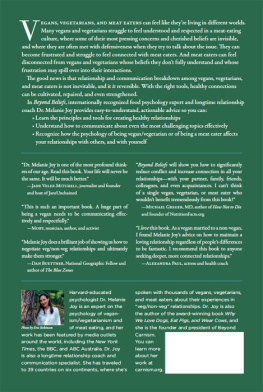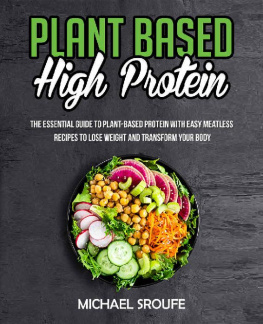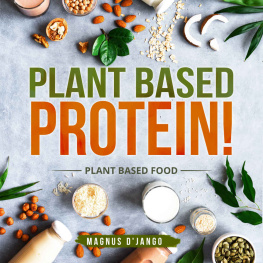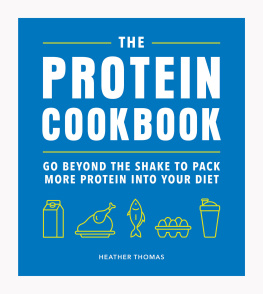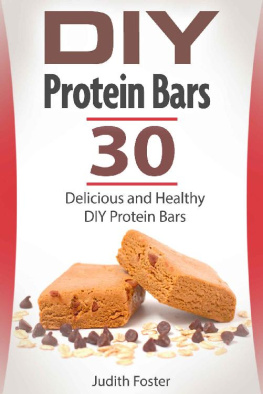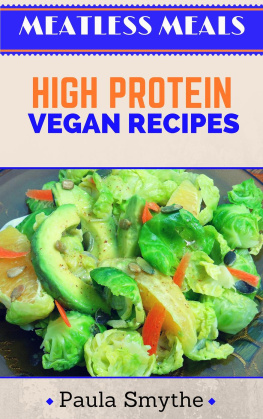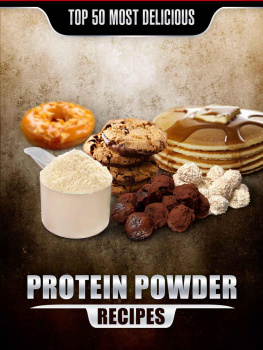The information and advice provided by the authors in this book is not intended to replace the services of a physician, or the medical care or advice you receive from your physician, nor does it constitute a doctor-patient relationship. Information in this book is provided for informational purposes only and is not a substitute for professional medical advice. You should consult your physician or health care professional regarding the care of your child and, in particular, with respect to any symptoms that may require diagnosis or medical attention. You should also follow your physicians advice in the event of any conflict with any information contained in this book. This book was written as of January 2018, and as new information becomes available through research, experience or changes to product contents, some of the data in this book may become invalid. You should seek the most up-to-date information on medical care and treatment from your physician or health care professional. Any action on your part in response to the information provided in this book is at your discretion. You should consult your physician or health care professional concerning any information contained in this book. Publisher makes no representations or warranties with respect to any information contained in this book and is not liable for any direct or indirect claim, loss or damage resulting from the use of information contained in this book.
Copyright 2018 by Lime Tree Productions, Inc. and the Good Food Institute
Cover design by Richard Aquan.
Cover copyright 2018 by Hachette Book Group, Inc.
Hachette Book Group supports the right to free expression and the value of copyright. The purpose of copyright is to encourage writers and artists to produce the creative works that enrich our culture.
The scanning, uploading, and distribution of this book without permission is a theft of the authors intellectual property. If you would like permission to use material from the book (other than for review purposes), please contact permissions@hbgusa.com. Thank you for your support of the authors rights.
Hachette Books
Hachette Book Group
1290 Avenue of the Americas, New York, NY 10104
hachettebooks.com
twitter.com/hachettebooks
First Edition: January 2018
Hachette Books is a division of Hachette Book Group, Inc. The Hachette Books name and logo are trademarks of Hachette Book Group, Inc.
The publisher is not responsible for websites (or their content) that are not owned by the publisher.
The Hachette Speakers Bureau provides a wide range of authors for speaking events. To find out more, go to www.hachettespeakersbureau.com or call (866) 376-6591.
Library of Congress Cataloging-in-Publication Data has been applied for.
ISBNs: 978-1-60286-332-3 (hardcover), 978-1-60286-333-0 (e-book)
E3-20171206-JV-PC
For Alka and for Dan
M ark stares into the mirror at a body he hardly recognizes. His muscles appear flaccid, his hair patchy, his skin sagging. He looks and feels exhausted. After a quick Google search, one word surfaces as the answer to his problems: protein. Mark rushes to the store and joins the plethora of Americans in a crusade to eat as much protein as possible. His meal plan for the next day includes two eggs, beans, and bacon for breakfast; a broiled chicken breast with buttered broccoli for lunch; and a hearty hamburger (no bun) with a side of quinoa for dinner. He washes each meal down with a whey-protein shake.
By the time Mark goes to sleep with dreams of his future Adonis-like physique, hes consumed 190 grams of proteinnearly three times the amount suggested by the Institute of Medicine. Hes also spent three times more on groceries, from the free-range chicken breasts to the omega-3-fortified eggs to the locally sourced burger meat. But at Marks next checkup, his doctor informs him that his cholesterol levels have skyrocketed and his blood pressure is off the charts. He is a ticking time bomb, his doctor warns. Is this what all that protein has given me? Mark now wonders. There has to be a better way.
Diet fads come and go, but they all find their way to Samantha. She has called herself a professional dieter ever since her quest for a weight-loss magic bullet became an obsession. Samantha has jettisoned starches from her fridge, which is now overflowing with meat, eggs, and full-fat dairy products. Her favorite is Greek yogurt. Samantha is pleased that so many of her favorite foods, like bacon and heavy cream, are included in the diet shes currently following, all in the name of protein. She isnt sure how much protein shes consuming, but as long as her food comes from something that swam, flew, or walked, she assumes shes doing the right thing. She lost a dozen pounds on her new diet but then the weight piled back on relentlessly. Meanwhile, shes been so constipated that she needs a daily laxative.
Sally spends most of her time worrying about her five-year-old daughters well-being. Is she making friends? Is she being challenged in school? Is she getting enough protein? Sally sees constant protein reminders throughout her day. The National Fluid Milk Association runs an ad campaign titled Milk Life, emphasizing the health benefits of protein consumption (through milk, of course). The National Dairy Council provides classroom materials for her daughters preschool. Sally knows that protein is a vital part of a childs diet, but she didnt know it was this vital. Just the other day, Sally took a picture of her daughters luncha banana, carrots, and her favorite spaghetti with garlic breadand posted it on Facebook. Sally couldnt believe the comments: Yum! But wheres the protein?! and A growing girl needs protein!!! She feels like a bad mom, and theres no worse feeling than that. She is afraid to ask that simple question: Whats the big deal with protein? There are collages of people we have heard from throughout the years, but their concern is the same: protein.
Today it seems everyone has an answer for that question, but rarely the right one. The only constant is that were obsessed with protein. We look for it on menus and labels, form the family table around it, and get anxious at the thought of not eating enough of it. This is for a good reason: protein is essential. It makes your hair strong and your skin supple. It fuels your immune system. It helps form the hormones, neurotransmitters, and enzymes that affect the functioning of your organs and nerves. Protein is, quite literally, the foundational building block of a healthy body. Without it, life would not be possible.
Protein was first isolated in 1839 by a Dutch chemist named Gerhard Mulder. He named his discovery after the Greek word proteios, which means of primary importance. It was a fitting baptism for a nutrient that has become the subject of a nationwide fixation. We need to eat protein to survive, but our supersized culture has twisted this fact into a dangerous fallacy: that we need to eat as much protein as possible.
Mulder originally isolated protein from meat, which gave birth to another myth: that only animal products have protein. Thats not the casethere are many sources of proteinbut most people are under that impression, perhaps because its ubiquitous and easy.
Of course animal protein may have been essential long ago for nourishing our ancestors in times of scarcity. These apish humans scavenged for animal meat when there wasnt enough plant food to sustain them, and the extra calories helped hasten human evolution. (Until the invention of tools, early humans were not effective hunters. They had to rely on larger and faster animals to leave fallen prey for them to scavenge.) And even still, a little bit of meat is fine for humans. But you know how we humans tend to be: if a little bit is fine, more must be better.


